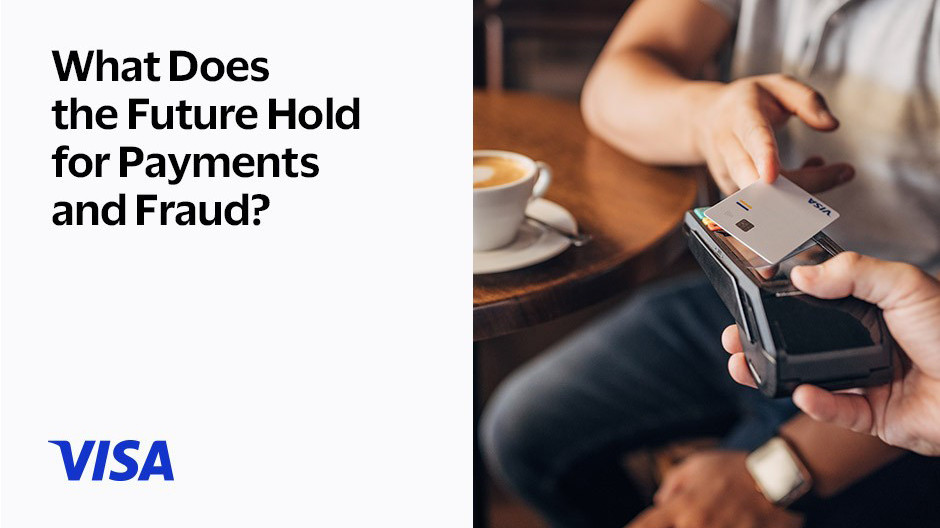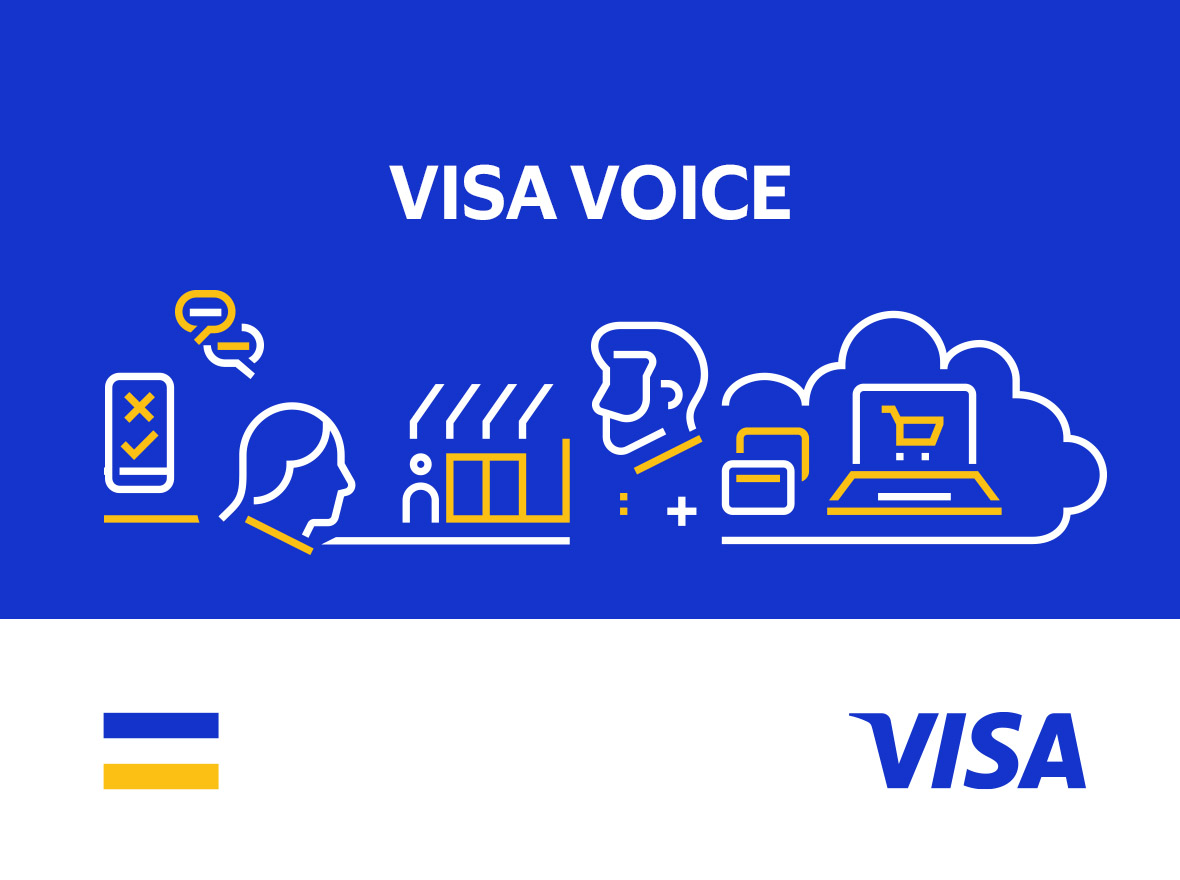What Does the Future Hold for Payments and Fraud?
19.09.2024 | 13:28 Home / News / Visa Voice /

Traditionally, payments have been a four-party model, featuring acquirers, issuers, merchants, and cardholders. Today, however, there are significantly more players, including payment facilitators and enablers. While this evolution continues to improve the customer experience, it also results in a much larger attack surface for criminals to exploit.
Indeed, criminals are uniting like never before in the dark web and taking more brazen steps than ever to perpetrate fraud. Fraudsters are using audio, text, images, chatbots, video, code, and Generative AI to make their way to consumers’ money. Phishing and malware attacks are becoming more prevalent, and new sophisticated use cases are emerging. For example, criminals now have the capability to recreate faces to pass a biometrics test or create a fully functioning voice clone using just three seconds of audio.
Cybersecurity technologies strike back
Visa is winning the battle against the fraudsters. In the last five years, the company has invested USD 10 billion in cybersecurity and in creating a more robust and secure ecosystem. As the first to use Artificial Intelligence (AI) in the payments industry, we understand the value of this technology for identifying and preventing fraud, which has allowed us to prevent $41 billion worth of fraudulent transactions in the past year alone.
AI and the emerging large language models are a game-changer in this evolving payment ecosystem that help increase fraud detection and prevention capabilities. AI is allowing Visa to identify patterns and anomalies across billions of transactions in real time to search for fraudulent activity and to support us in taking action.
AI is also driving personalization in the retail experience for consumers. In the future, everything is likely to be connected through digital assistants, creating a ‘phygital’ world that is personalized, integrated, and seamless for individual needs. Integration between inventory, store, and checkout experience is key. Retailers are using AI capabilities to connect consumer spending and habits across multiple platforms and locations. Creating a personalized shopping experience, both in-store and online, to make it feel like the store was designed specifically for them. This will result in an enhanced and omnichannel checkout experience, reducing cart abandonment.
The first line of defense
Visa is playing a leading role in delivering secure payment experiences of the future. We take the learnings we have from more than sixty years of card payments and are applying them to all forms of new money movements, including real-time payments. We are investing in evolving technologies such as tokenization and delivering new solutions such as Click to Pay to enhance the customer journey.
The flexibility and operational resilience of Visa’s network means our robust infrastructure can be adapted to meet new challenges, allowing us to stay ahead of the fraudsters. However, no technology is omnipotent, meaning consumer awareness and education are the critical first lines of defense against criminal intent.
In Armenia and worldwide, Visa strives to promote financial literacy and ensure that individuals and organizations know the risks and can adequately safeguard themselves from attacks. In 2022, we held the Payment Security Campaign in Armenia to raise awareness among Visa consumers about how to better protect sensitive data and detect fraud and social engineering scams. Our educational efforts reached over a million people, providing them with essential tips and practical skills to stay vigilant.
"At Visa, we prioritize payment safety and invite all industry players to join us in investing into security technologies at early-stage. In the past five years, Visa has globally invested USD 10 billion in cybersecurity, which has created a more robust ecosystem and prevented about $41 billion of fraud across the Globe during the last year alone. Focus on AI further implementation helps to ensure that progress is synchronized across the sector. Our commitment includes strengthening cybersecurity and raising awareness among cardholders about the latest Visa technologies designed to enhance their security. On our markets and in Armenia in particular, we implemented the Payment Security Campaign to promote financial literacy, equipping individuals and organizations with the knowledge and tools to protect themselves against fraud. Visa continues to lead the way in making financial transactions more convenient, secure, and reliable for everyone,” says Larysa Makarova, Head of Risks in Ukraine, Georgia, and CISSEE at Visa.
Views 18813
Indeed, criminals are uniting like never before in the dark web and taking more brazen steps than ever to perpetrate fraud. Fraudsters are using audio, text, images, chatbots, video, code, and Generative AI to make their way to consumers’ money. Phishing and malware attacks are becoming more prevalent, and new sophisticated use cases are emerging. For example, criminals now have the capability to recreate faces to pass a biometrics test or create a fully functioning voice clone using just three seconds of audio.
Cybersecurity technologies strike back
Visa is winning the battle against the fraudsters. In the last five years, the company has invested USD 10 billion in cybersecurity and in creating a more robust and secure ecosystem. As the first to use Artificial Intelligence (AI) in the payments industry, we understand the value of this technology for identifying and preventing fraud, which has allowed us to prevent $41 billion worth of fraudulent transactions in the past year alone.
AI and the emerging large language models are a game-changer in this evolving payment ecosystem that help increase fraud detection and prevention capabilities. AI is allowing Visa to identify patterns and anomalies across billions of transactions in real time to search for fraudulent activity and to support us in taking action.
AI is also driving personalization in the retail experience for consumers. In the future, everything is likely to be connected through digital assistants, creating a ‘phygital’ world that is personalized, integrated, and seamless for individual needs. Integration between inventory, store, and checkout experience is key. Retailers are using AI capabilities to connect consumer spending and habits across multiple platforms and locations. Creating a personalized shopping experience, both in-store and online, to make it feel like the store was designed specifically for them. This will result in an enhanced and omnichannel checkout experience, reducing cart abandonment.
The first line of defense
Visa is playing a leading role in delivering secure payment experiences of the future. We take the learnings we have from more than sixty years of card payments and are applying them to all forms of new money movements, including real-time payments. We are investing in evolving technologies such as tokenization and delivering new solutions such as Click to Pay to enhance the customer journey.
The flexibility and operational resilience of Visa’s network means our robust infrastructure can be adapted to meet new challenges, allowing us to stay ahead of the fraudsters. However, no technology is omnipotent, meaning consumer awareness and education are the critical first lines of defense against criminal intent.
In Armenia and worldwide, Visa strives to promote financial literacy and ensure that individuals and organizations know the risks and can adequately safeguard themselves from attacks. In 2022, we held the Payment Security Campaign in Armenia to raise awareness among Visa consumers about how to better protect sensitive data and detect fraud and social engineering scams. Our educational efforts reached over a million people, providing them with essential tips and practical skills to stay vigilant.
"At Visa, we prioritize payment safety and invite all industry players to join us in investing into security technologies at early-stage. In the past five years, Visa has globally invested USD 10 billion in cybersecurity, which has created a more robust ecosystem and prevented about $41 billion of fraud across the Globe during the last year alone. Focus on AI further implementation helps to ensure that progress is synchronized across the sector. Our commitment includes strengthening cybersecurity and raising awareness among cardholders about the latest Visa technologies designed to enhance their security. On our markets and in Armenia in particular, we implemented the Payment Security Campaign to promote financial literacy, equipping individuals and organizations with the knowledge and tools to protect themselves against fraud. Visa continues to lead the way in making financial transactions more convenient, secure, and reliable for everyone,” says Larysa Makarova, Head of Risks in Ukraine, Georgia, and CISSEE at Visa.










